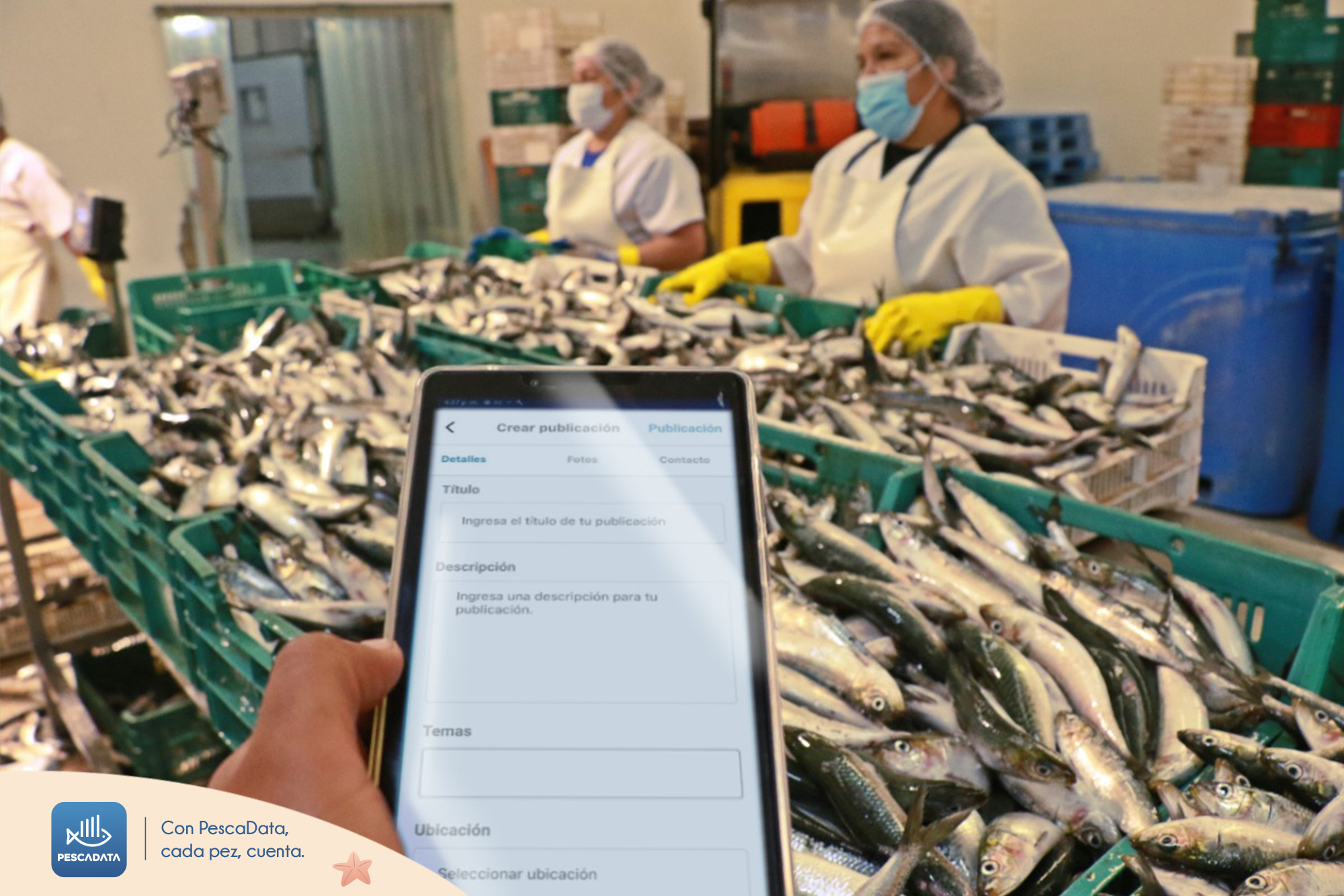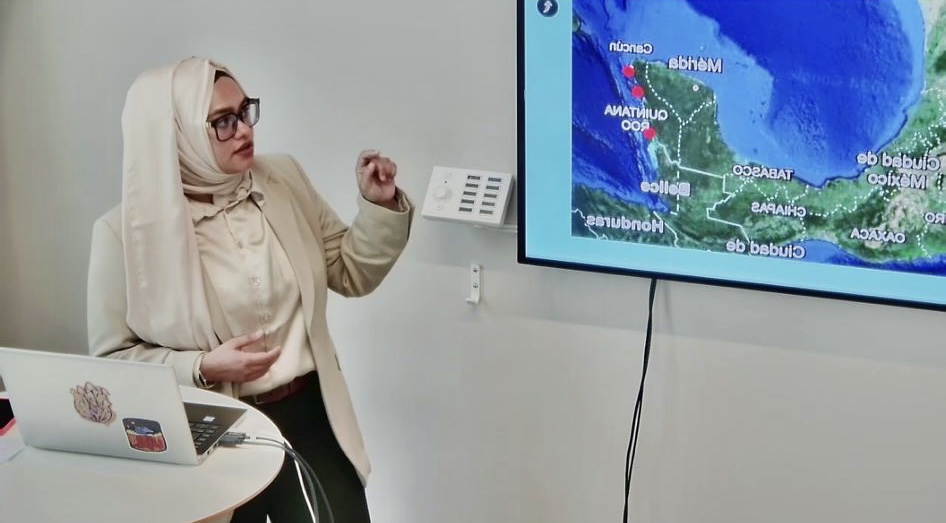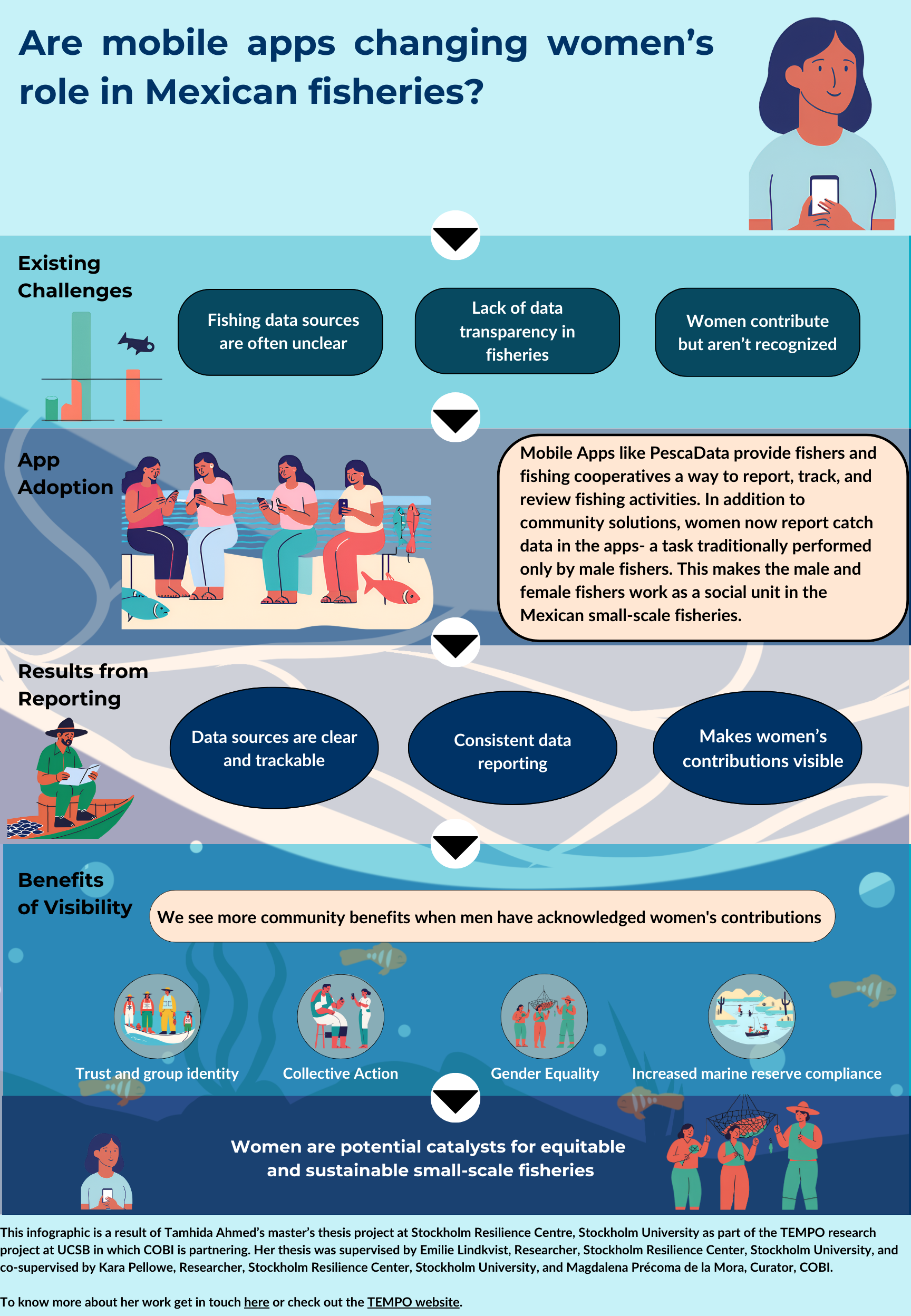Does Digital Divide or Unite? The impact of mobile apps on Mexican small-scale fisheries

Tech is everywhere. As of 2023, more than twenty-five Mexican fishing communities use Apps to track fish catch. Tamhida Ahmed is a TEMPO partner at Stockholm Resilience Center, Stockholm University. She just finished her Master’s Thesis on examining the role of PescaData (reporting community solutions and catch data) in collaborative fishing practices.
Many small-scale fisheries face significant challenges in compiling and accessing reliable, consistent data. Reliable fishery data with clear sources is crucial for sustainable management decisions at the local and national levels. Tamhida Ahmed uses Q-method modeling and gender theory to study this potential shift in attitude among Mexican fishers.
Using Mexico as a case study, this research investigates the opportunities of mobile apps like PescaData for transparent data sharing to address gender disparities and women's engagement in small-scale fisheries.
The NGO Comunidad y Biodiversidad (COBI) launched the PescaData app in 2020 and now more than 2500 people use it across Mexico. The app helps fishers report community solutions (e.g., monthly beach clean-ups, social campaigns, waste management workshops, cooking contests, and fishing tournaments) and fish catch data (e.g., weight, types of fish species caught, the volume of fish). Although PescaData’s community solutions are public, the fishers have exclusive rights over their catch data reporting.
Mujeres Estero fisherwomen lead community solutions in Sonor, MX.
“I had heard questions about how women can build trust, gain ‘visibility,’ and foster collective action in fishing communities. When I learned about these Apps like PescaData, I focused my research on understanding the gender dynamics of using such Apps.” - Tamhida Ahmed, Master’s Candidate, Stockholm Resilience Center, Stockholm University.
Her research asks, “Can mobile apps help bring visibility and agency to women in the fishing sector?” 10 Mexican fishers went through a “Q-sorting” exercise where they ranked statements on a scale rating of “most agreeing”, to “neutral”, to “most disagree.” After this, each fisher participated in a semi-structured interview. Interviews helped to probe fishers’ attitudes and norms about gender aspects in reporting data. Interviews included questions like:
- Do you think mobile apps can be used as a digital tool to increase the visibility of women's contributions to Mexican small-scale fisheries?
- Can apps build trust and increase compliance with marine reserves, especially among the male fishers in the community?
- Does the use of mobile apps lead to stronger collective action in Mexican small-scale fisheries?
Ahmed found patterns of shared opinions between the fishers using the “Q-Method” model. Social scientists use the Q-method to articulate how different groups of people think about a particular topic; in this case, that’s women’s role in fisheries. This model produces clusters of shared opinions among stakeholders who demonstrate similar thinking. Ahmed’s model presented two of these clusters.
- Shared Opinion 1: Mobile apps promote the visibility of women and lead to increased collaboration between male and female fishers in the community, creating a sense of group identity that fosters trust and spearheads stronger collective action.
- Shared Opinion 2: Stronger collective action leads to gender equality where male fishers entrust women with more fishing tasks like reporting fish catch data on their behalf– a task traditionally performed only by male fishers. This results in women using mobile apps to take a more active role in reporting community solutions and fish catch data, leading to increased compliance with marine reserves in the fishing community.
Let’s be clear, women are not new to the fishing workforce. What Tamhida’s research shows, however, is that when women report data through mobile apps, men see exactly how much women contribute; and women thus establish their legitimacy.
 Tamhida Ahmed presents her Master's thesis in Stockholm, Sweden
Tamhida Ahmed presents her Master's thesis in Stockholm, Sweden
Ahmed believes this can catalyze positive change. She mentions “Mobile apps have the potential to enhance the visibility of women's growing role, promoting equitable and sustainable small-scale fisheries through data-driven evidence which visualizes their work in the fishing sector."
This Master’s thesis is part of the TEMPO research project based at the University of California, Santa Barbara, and SRC, where COBI is a partner. Emilie Lindkvist, Researcher at Stockholm Resilience Center, Stockholm University, supervised the thesis, which was co-supervised by Kara Pellowe, Researcher at Stockholm Resilience Center, Stockholm University, and Magdalena Précoma de la Mora, Curator at COBI.
You can see Tamhida Ahmed’s full thesis here, or check out her poster presentation at the upcoming Programme on Ecosystem Change and Society (PECS) conference in August, Montreal, Canada. Check out our visual abstract of Ahmed's research below:
